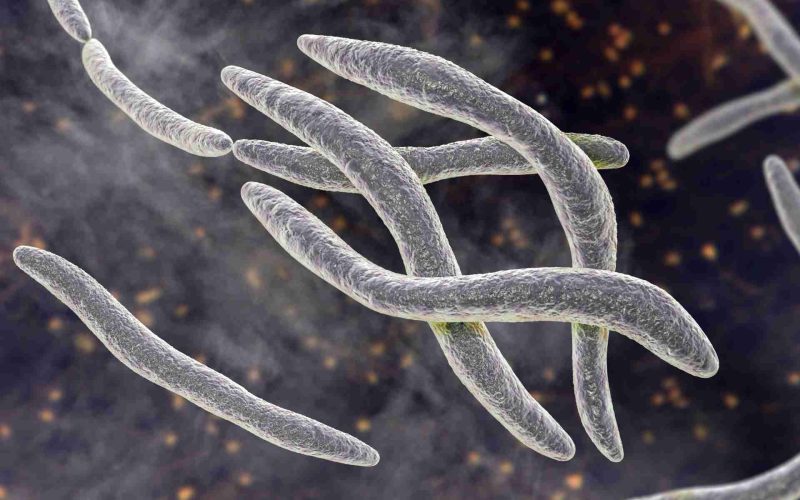Scientists at UMC Utrecht found a surprising link between the expression of PD-L1, one of the principal targets of immune checkpoint inhibitor therapy for cancer, and the secretion of ADP-heptose, a pro-inflammatory metabolite from gut bacterium Fusobacterium nucleatum. This research adds another tile to the fascinating mosaic of host-microbe interactions and the role that this microbe plays in cancer progression.
Colorectal cancer is the third most common cancer, causing nearly 1 million deaths worldwide in 2022. In recent years, immune checkpoint inhibitor (ICI) therapy has been on the rise. ICI therapy exploits the mechanism of many receptors expressed by our immune system to regulate immune response, among these is PD1. This receptor acts as a brake by preventing immune activation when bound to PDL1. Despite its promise, response rates to this therapy range from 40-85 percent, depending on tumor type. The reasons for a lack of response to ICI therapy is still a topic of research, but it is believed that several cancer- and host-specific factors might play a role.
Because of its location, colorectal cancer is often thought to be heavily influenced by gut bacteria. Among the various bacteria which make up the gut microbiome, a few of them are considered as oncogenic bacteria, which favor cancer development and progression. Among these, Fusobacterium nucleatum is known to infiltrate tumors, leading to speculations about the role played by this microorganism in cancer progression. Although various interactions between this bacterium and cancer cells have been elucidated, the chronic inflammatory response caused by F. nucleatum and its effects on the tumor have yet to be explained.
To better understand the relationship between F. nucleatum and colorectal cancer, postdoc Coco Duizer, PhD set out to investigate this mechanism as part of his PhD research at the Department of Medical Microbiology at UMC Utrecht. In the study, published recently in the journal Gut Microbes, Duizer and colleagues showed that the exposure of a colorectal cancer cell line to a molecule secreted by F. nucleatum leads to proinflammation. Through a stepwise elimination process, the study indicates that ADP-heptose or related heptose phosphates are the culprit for this reaction by activating ALPK1, an intracellular immune receptor. Moreover, the study confirms that through this molecular interaction, a general pro-inflammatory response is elicited, resulting in downregulation of DNA mismatch repair genes and, importantly, an upregulation of PD-L1.
Interestingly, downregulation of DNA mismatch repair mechanisms is associated with more frequent mutations in cancer cells, eventually leading to higher number of neo-antigens which is known to render cancer cells more sensitive to ICI therapy. Additionally, upregulation of PD-L1 offers an increased number of targets for ICI therapy rendering the tumor more susceptible to this type of treatment. As a result, these findings highlight F. nucleatum as a potential prognostic indicator of clinical outcomes for ICI-treated colorectal cancer patients.
“We are still working hard to understand the full impact of the activation of ALPK1 on cancer development and progression, but our work of F. nucleatum highlights a potential key step in this process”
“We are still working hard to understand the full impact of the activation of ALPK1 on cancer development and progression, but our work of F. nucleatum highlights a potential key step in this process”, states Marcel de Zoete, PhD, co-supervisor of Coco Duizer and associate professor at the Department of Medical Microbiology at UMC Utrecht. “In addition, we would like to investigate the role of Fusobacterium in other diseases such as periodontitis, inflammatory bowel disease, and Lemierre’s syndrome.”
Duizer C, Salomons M, van Gogh M, Gräve S, Schaafsma FA, Stok MJ, de Zoete MR. Fusobacterium nucleatum upregulates the immune inhibitory receptor PD-L1 in colorectal cancer cells via the activation of ALPK1. Gut Microbes, 2025;17(1)
